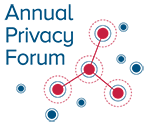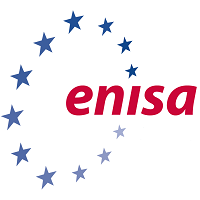Latest news


-
Co-located IPEN meeting
[posted on: 28/07/2016]
-
IND2UCE demonstrator will be present.
[posted on: 25/07/2016]
Call for Papers
Nowadays electronic communication networks and digital services are an essential part of an increasing number of everyday commodities. In the era of automated profiling and electronic surveillance, citizens face a serious threat against their right to privacy and informational self-determination, especially when using the internet and mobile services. The lack of transparency regarding the functionality and interconnection of such services increases the risk of uncontrollable processing of personal data. In this regard, the upcoming Data Protection Regulation will be a useful instrument to protect the privacy of individuals. However, for its successful implementation, this new framework needs to be enforced by proper technologies and encompassed with sustainable business models along with mechanisms to promote privacy awareness and help users to understand the value of their data.
ENISA is organizing the 2016 edition of the annual privacy forum, in the light of the upcoming data protection regulation and the European digital agenda. We invite papers covering original work on the technological, economic, legal and societal aspects of the challenges that will come up with the implementation of the new framework. We particularly invite multidisciplinary papers that make it explicit how the presented work can contribute to bridging the gap between research and policy.
Moreover, in order to also encourage contributions from policy makers, representatives of competent authorities (such as Data Protection Authorities), industry experts, NGOs and civil society associations, we invite opinion papers from all stakeholders on the above mentioned topics. Opinion papers will reflect the opinion/position of the author(s) on the selected privacy-related topic. Both research and opinion papers should deal with at least one of the following aspects:
- Implementation aspects of ‘by design’ and 'by default' paradigms
- Implementation and adoption of PETs in today’s digital services
- Modelling of data protection and privacy requirements, such as:
- machine readable representations and automatic evaluation of policies
- Enabling transparency: technological and organizational challenges.
- Technical solutions for the enforcement and the implications of the subject’s right, e.g. right to erasure, access and correction.
- Aspects of privacy impact and risk assessment
- Technical solutions for data portability
- Sustainable business models for privacy friendly online services
- Information and consent in online environments: practical solutions and implementations
- Privacy awareness, reliability and usability of PETs
- Trust services for the protection of personal data - privacy aware trust services (i.e. electronic certificates, signatures, etc.)
- Security measures for the protection of personal data
- Economics of privacy and personal data
Student Papers. In order to promote the ideas of young researchers, the PC of APF encourages submissions of student papers. These papers will be treated as thoroughly as full papers, but can be shorter (up to 8 pages); these papers should contain new ideas, that might not be completely detailed out yet. They give the opportunity to speak at the conference, get feedback and find co-authors and collaborators for the PhD project with complementary expertise.
Short Papers. In addition to student papers, we also call for short papers. This call is open to anyone who has a sketch of an idea, opinion or a call for collaboration. Papers should be up to 8 pages and should not overlap with other work.
Review and Publication
All submissions will be thoroughly reviewed by our PC members. We aim at minimal 3 average 4 reviews per Paper. Furthermore, papers will be published in the proceedings of the conference with a publishing house soon to be selected and announced.
We invite submissions of original work; papers must not overlap substantially with papers that have been published or that are simultaneously submitted to a journal or a venue with proceedings. Submissions can be up to 16 pages long, excluding bibliography and appendices. Shorter submissions are strongly encouraged. PC members are not required to read the appendices, so the paper should be self-contained and intelligible without them. Submissions must be written in English and need to comply with the Springer LNCS style guide, which can be found at:
- http://www.springer.com/computer/lncs?SGWID=0-164-6-793341-0
Authors must submit their papers by the deadline indicated on the conference web site and follow the requirements stated there.
Submission at https://easychair.org/conferences/?conf=apf2016
Note. We can now confirm that Springer accepted our proposal. Hence, submissions accepted for presentation will have the opportunity to be published in the conference proceedings, which will appear in Springer’s LNCS series.
Important dates
| Submission of full papers: | April 10 March 31 March 15, 2016 23:59 AoE |
| Notification to author: | May 10, 2016 |
| Camera-ready copies: | June 15, 2016 |
| APF 2016 taking place on: | September 7-8, 2016 |




